At This Throwback Race, the OG Ironman Spirit (and Mustaches) Prevail
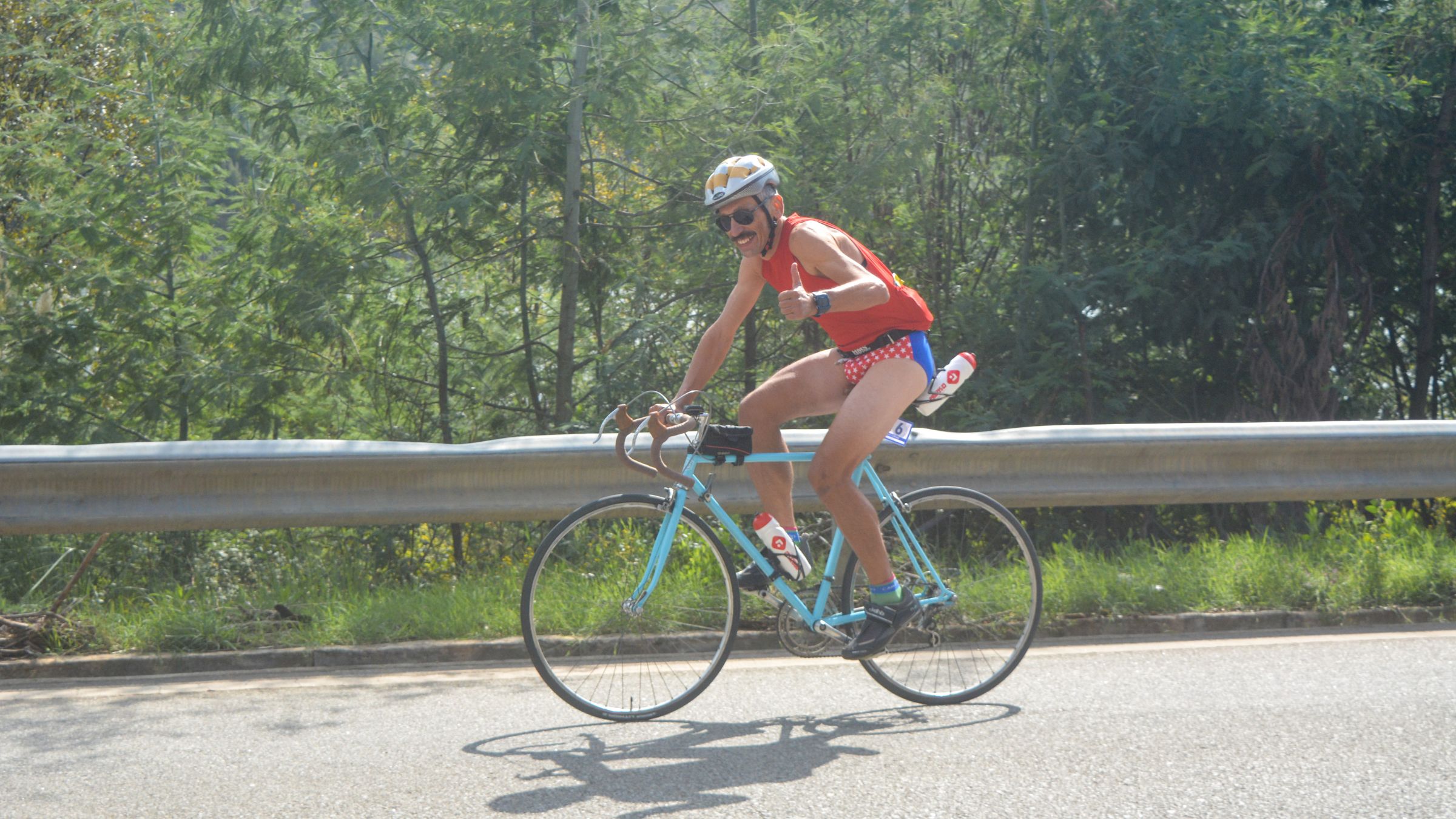
(Photo: Paulo Costa)
At the Spirit of 78 Triathlon, there are no carbon-fiber tri bikes. There are also no aid stations, no thumping dance music at the finish line, and no entry fees. Everything in this race, from the heavy steel road bikes to the race briefs and cotton t-shirts, is as it was for the original Ironman triathlon. It may be 2022, but the spirit of 1978 is alive and well.
For the past five years, Paulo Costa has organized the retro race in Portgual as a way to reconnect with the origins of triathlon – not just swim, bike, run, but “friendship, socialization, and companionship.”
“In October of 2016, I went with a group of friends to the Iberman, an iron-distance race on the border of Spain and Portugal,” Costa recalls. “On the train home, with the endorphins rushing through our bodies, we were talking about what that first Ironman was like.”
As triathletes are wont to do after a race, the six newly-minted finishers started talking a big game. They bet they could pull off the distance racing like the OG Ironman finishers, complete with steel bikes, limited aid stations, and a whole lot of heart. By the time the athletes arrived home, they had sketched out their general concept for their retro race:
“It should be free, with the looks of the seventies, preferably made with steel bikes with gears in the frames, and a limited number of athletes” they wrote. “Essentially, it should maintain the spirit of the first race back in 1978: friendship, socialization, and companionship. And, like the first Ironman, it should be free to enter.”
RELATED: Recalled: The First Ironman By the Numbers
In the following months, Costa and one of his friends from that storied train ride, Rui Pena, worked to make their throwback event a reality. They put together a small team of volunteers to help with the essential workings of the race, from keeping time to securing the athletes’ equipment in transition.
They also came up with a set of rules to maintain the true spirit of 1978, including a mustache clause (yes, you read that right):
“In order to honor the heroes of ‘78, the athletes must present themselves at the starting line with a 70’s look. Mustache or beard is mandatory for men; whoever wants to go further has the option of going in a Speedo and a top.”
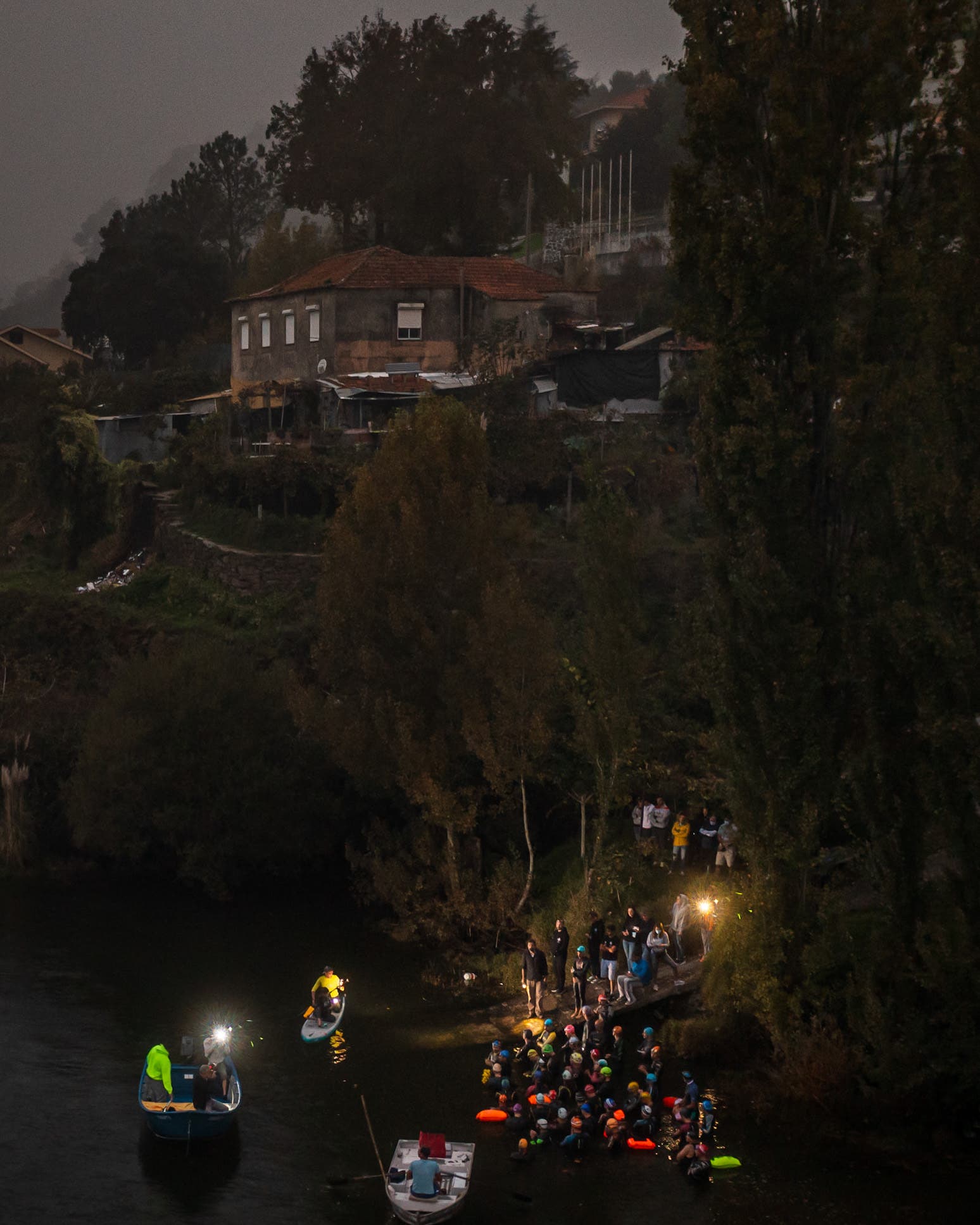
Sure enough, on October 7, 2017, 15 throwback triathletes wheeled their steel-frame bikes into a makeshift transition next to the swim exit alongside the Douro River. They swam along the bank of the river and made their way through bike and run courses open to traffic, just as the original Ironman race was in Hawaii. And just like in 1978, only ten athletes actually finished the race.
RELATED: How Long is Ironman? A Look at How the Ironman Distance Came to Be
Though the race organizers did not promote the event, word quickly spread amongst the Portuguese triathlon scene, then the community at large. Dozens, then hundreds, of curious locals came out for that first race to see what these old-school crazies were up to. After the race, Costa was flooded with inquiries from triathletes looking to take part in the next event.
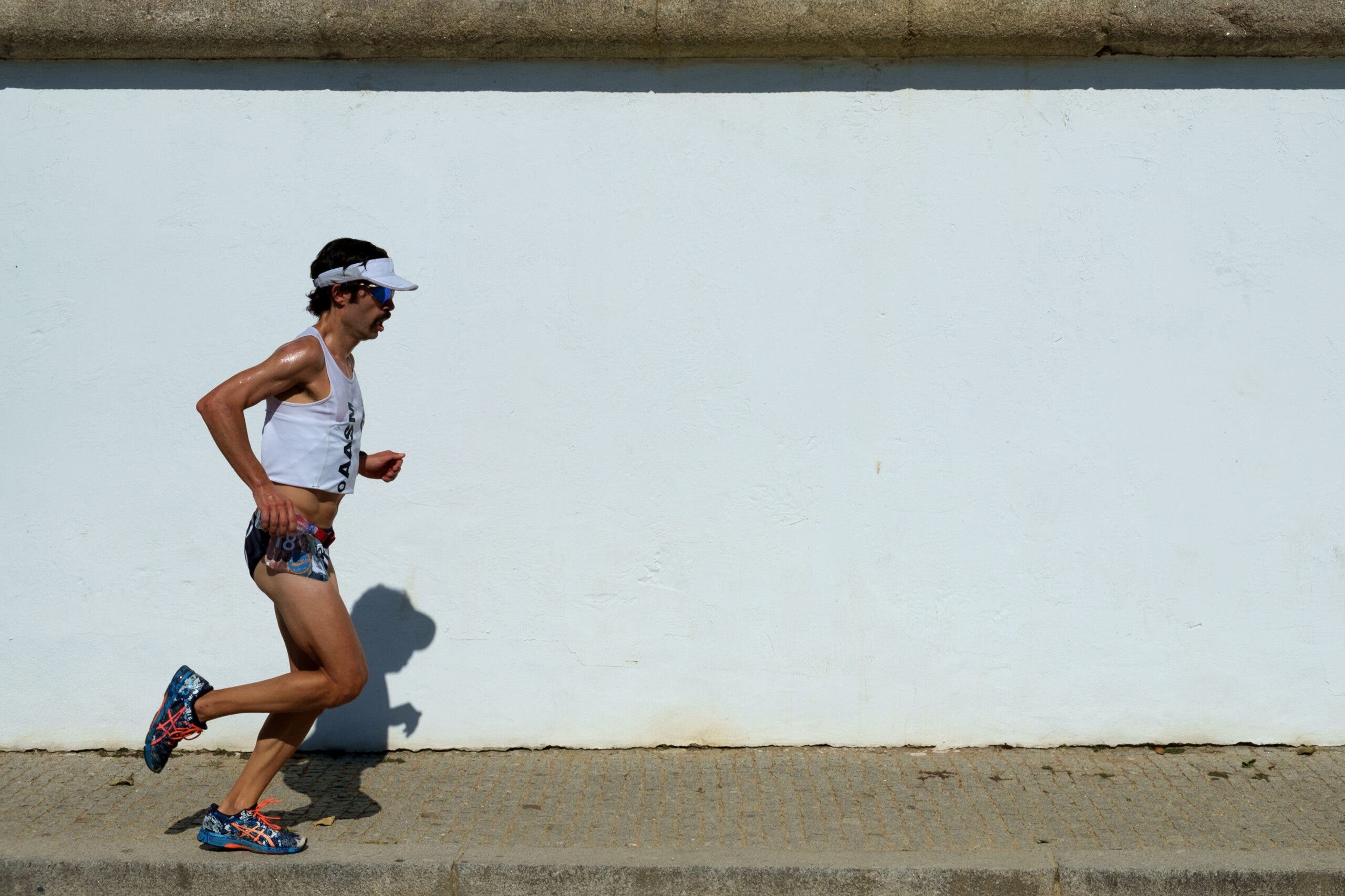
The Spirit of 78 triathlon will take place for the sixth year in a row on October 8, 2022, with the same rules as the first event (and the first-ever Ironman). It is still free to enter, though the organizers have expanded the start list from 15 to 60. Due to popular demand, the race organizers have shifted from a first-come, first-serve model for entry to a lottery system. Though one might expect the majority of entrants to be old-timers looking for a nostalgia hit, Costa says the race attracts a wide variety of people:
“We get all kinds of athletes. We’ve had athletes that came to race with the objective of winning, and for that they trained hard and gave their maximum. We’ve had athletes that only came because of the challenge of doing a race as close as possible as the first Ironman. We’ve had athletes that wanted to do the distance for the first time. And as it is a free event, we’ve had athletes that didn’t want to pay a lot of money to do a race from the major brands,” Costa says. “But regardless of their initial goal, in the end, everyone feels the same: a great satisfaction and gratitude for everything they went through during the day.”
Today, the event has expanded from a handful of Portuguese athletes from the same triathlon club to an international field. The 2022 edition will feature athletes from Spain, Italy, Brazil, USA, Belgium, and Switzerland. Recent years have also seen an increase in the number of female triathletes participating.
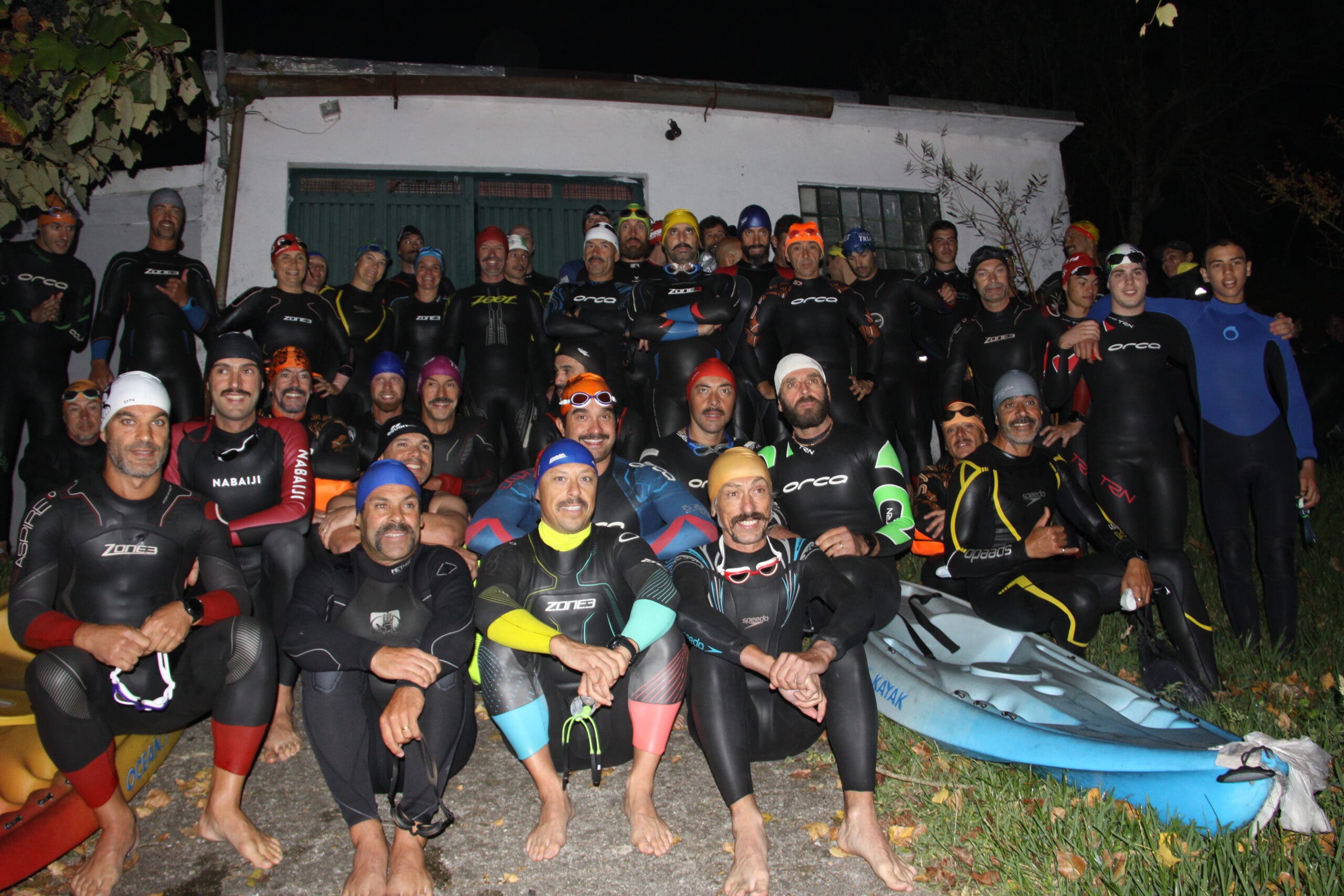
In the 1978 Ironman, Naval Reserve lieutenant Gordon Haller was the first to finish with a time of 11:46:58. Most athletes in the Spirit of 1978 finish around that time, though some have finished as quickly as 9 hours and 30 minutes – an impressive feat without a carbon-fiber bike. But athletes don’t enter the race to get a PR – instead, they come for the community.
“The only thing that matters is to finish. We continue until the last athlete finishes. The podium ceremony is not performed until the last one comes in, regardless of how long it takes,” Costa says. This sentiment was underscored in the 2018 edition of the race, when one of the worst storms in recent memory blew through the city on race day, unleashing a torrent of rain and wind. At 10 PM, there was no one on the streets – not even cars – but three Spirit of 78 athletes, their headlights bobbing in the darkness. Still, all who had finished the event, along with their families, volunteers, and spectators, waited for those three to come in.
“One of the most important things about this race is the socialization, friendship, and companionship between all the athletes during the race,” Costa says. “At the end of the day, to see the smiles in the faces of everyone involved, it’s all worth it. The race creates a community of friends who keep in touch and continue to talk to each other. When Spirit of 78 Triathlon finishers cross paths in other races, they scream ‘Let’s go Mustache!’ with a big smile on their faces. It’s special.”
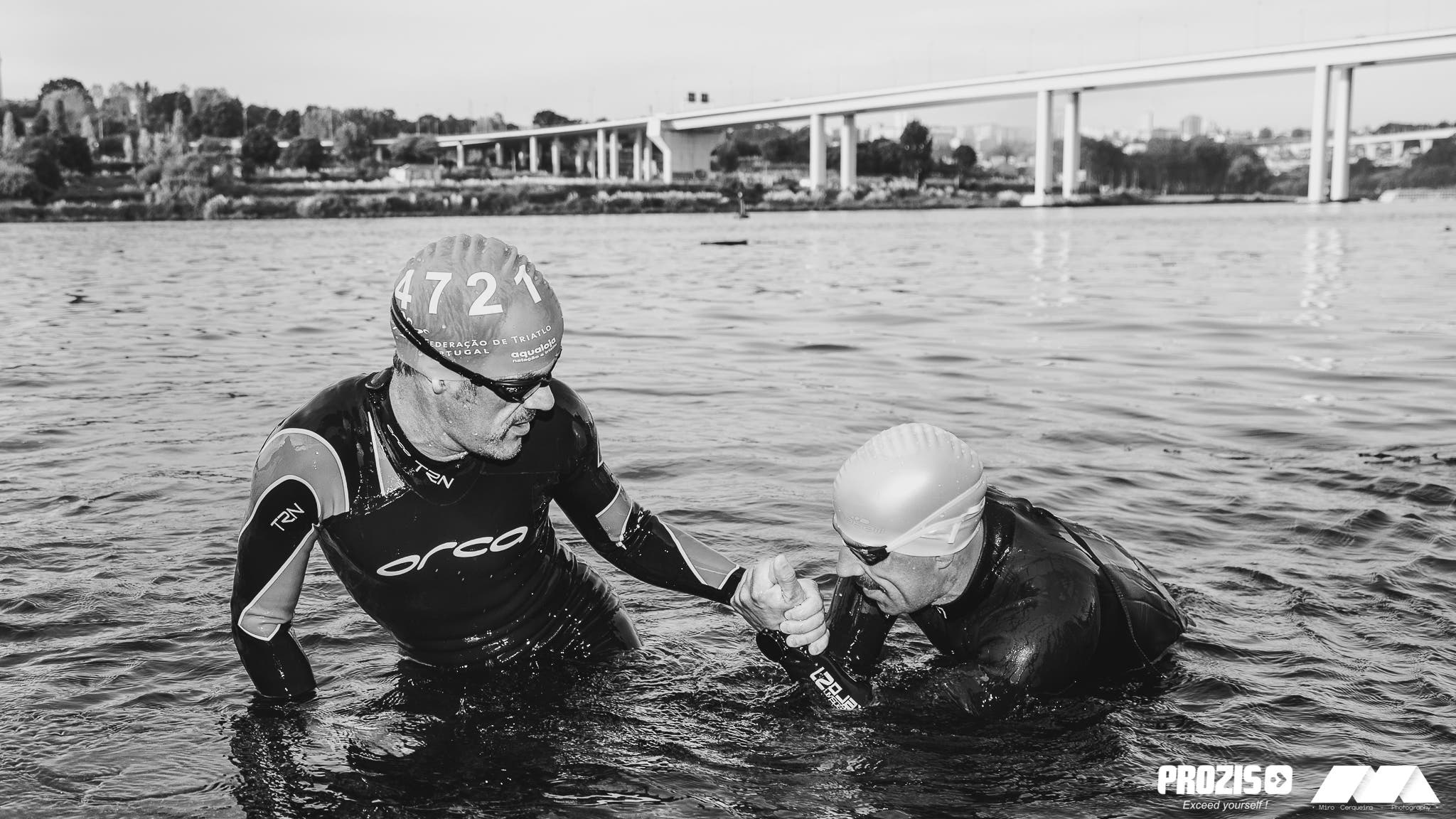
RELATED: Feature: Looking Back at 40 Years of Professional Triathlon